For a manager who never hid the need for control, Sir Alex Ferguson's relationship with David Beckham - the world's most famous and powerful player - was always liable to have tensions.
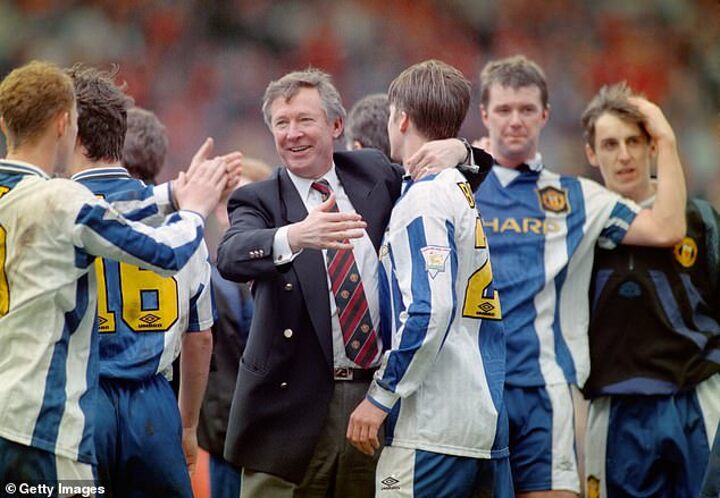
By the time Golden Balls left to become a Galactico at Real Madrid in 2003, Manchester United simply wasn't big enough for the both of them.
That evocative nickname for Beckham was coined by his wife Victoria in 2001. As a Spice Girl, she was as famous as Fergie or her husband during that period and an important influence in the breakdown between manager and glamour star.
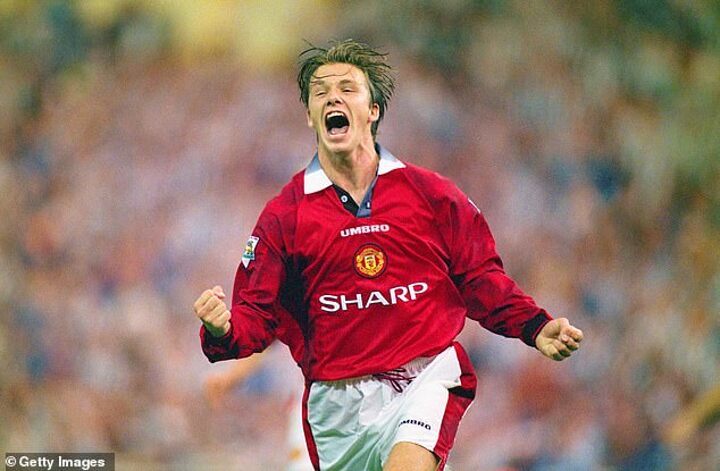
But she was not the only factor. Beckham was a trailblazer in having his own brand, commercial department and mass personal following. Any manager would have struggled to cope with that, even one as usually adaptable as Fergie.
Beckham's global level of fame in the early noughties was unique to the Premier League. When he toured the Far East as an individual, thousands would pack out stadiums to watch him drive round in a motorcade. He'd almost replaced Princess Diana as a national symbol.
Ferguson, born and raised in Glasgow where football was the only obsession in town, hated the showbiz element.
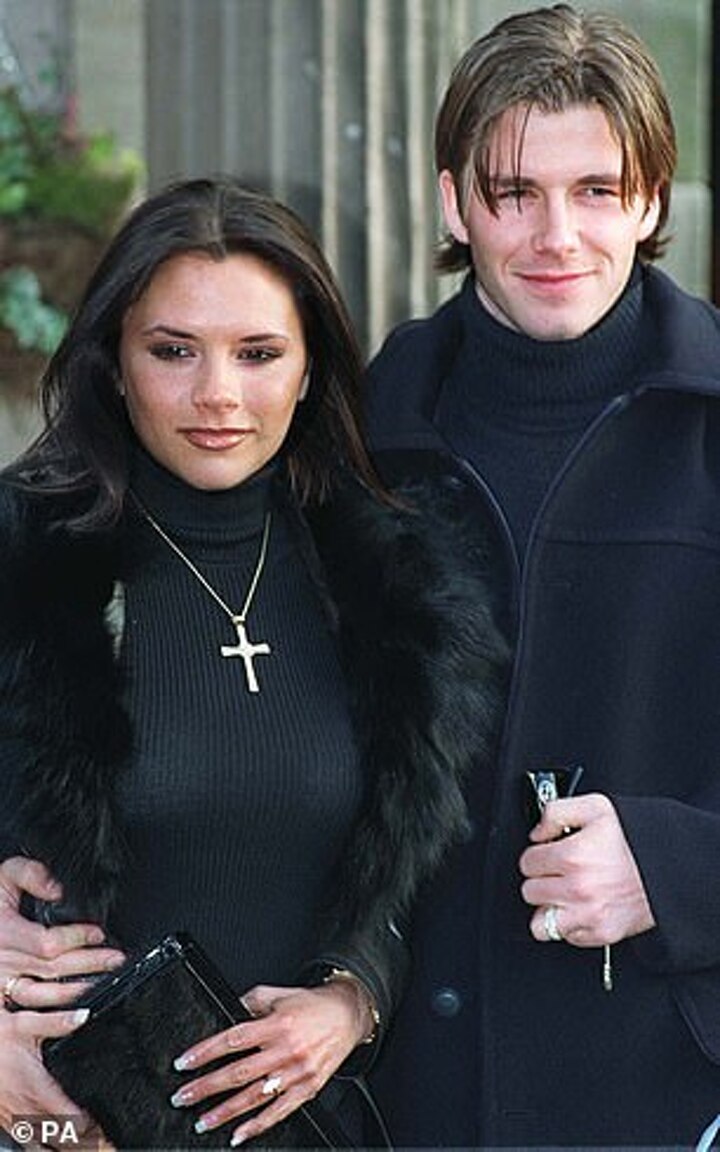
When Beckham once missed training to nurse his poorly baby, Ferguson demanded to know why mum wasn't there to do it. Victoria happened to be out of the country, she had an international career as well, but Beckham was dropped for the next game against Leeds in any case.
The straw that broke the camel's back was the Flying Boot incident in February 2003. Ferguson accused Beckham of a mistake in an FA Cup tie against Arsenal at Old Trafford and kicked a stray boot in rage that rose up and accidentally hit Beckham above the eye.
Beckham's PR savvy ensured the 'wound' was plastered all over the newspapers, and Ferguson realised he was no longer in control. 'I told the board David had to go,' he later revealed.
It was the culmination of several incidents that were essentially about power. Beckham had grown up as a United fan in east London but was part of United's academy from the age of 11 alongside Gary Neville, Paul Scholes and Nicky Butt - later they'd collectively become known as the famed Class of 92.
Yet there was something different about Beckham. Not only the looks that attracted advertisers or skills that saw him score from the halfway line against Wimbledon in 1995. He had his own mind and was able to challenge Ferguson's authority from a young age, well before he met Posh Spice.
In his autobiography, he remembers signing up with super-agent Tony Stephens, whose other star client was Alan Shearer. Stephens and Ferguson didn't get on and the United manager wouldn't have him in his office, but it didn't stop Beckham from signing up with the representative of his choice.
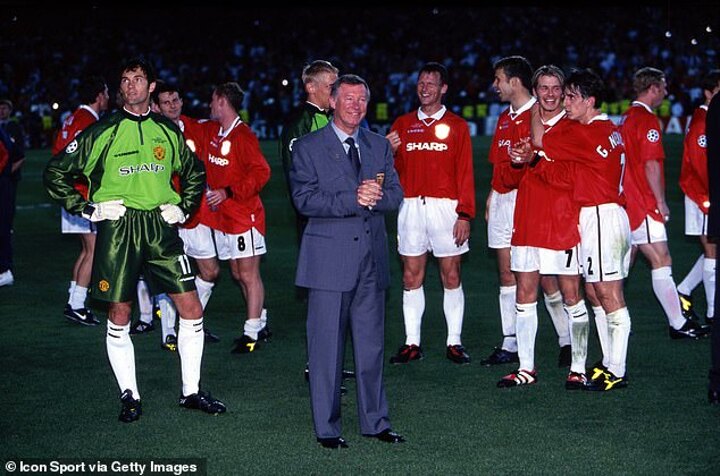
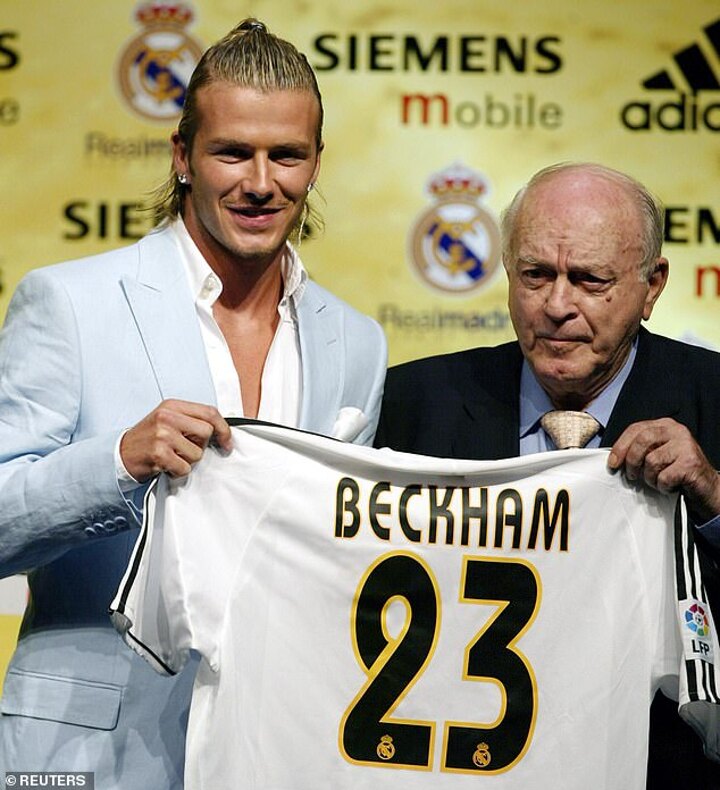
On a football level, Beckham revered Fergie who put his faith in youth and proved you could win with kids.
But Becks, whose work-rate was beyond reproach on the football pitch, would find himself testing the water in terms of the Old Trafford culture where Ferguson's authority was absolute.
'I once flew over to Ireland on a day off because Victoria was there. I didn't feel I needed to tell the manager what I was doing,' recalls Beckham.
'He didn't talk to me when I came back. I knew I was in a little bit of trouble.'
Today's Beckham can now see Ferguson's motivation was ensuring his players kept maximum fitness and freshness for match days. But these days overseas stars like Sergio Aguero will regularly fly abroad on days off without any reproach from their clubs, who are probably reluctant to provoke their star assets.
When Beckham got married, it was left to Stephens to ask if the couple could have an extra two days on honeymoon beyond the week they'd already planned. Stephens went above Ferguson's head to chairman Martin Edwards to make the request, a red rag to the manager who felt commercial power was threatening to usurp his own control in the dressing-room.
Ferguson had grown up in Glasgow where football was an obsession. Those values had earned him unprecedented success at Aberdeen and United and he couldn't properly comprehend why a player with Beckham's talent would compromise his career because he'd fallen in love with a pop star and wanted to be a celebrity more than winning trophies.
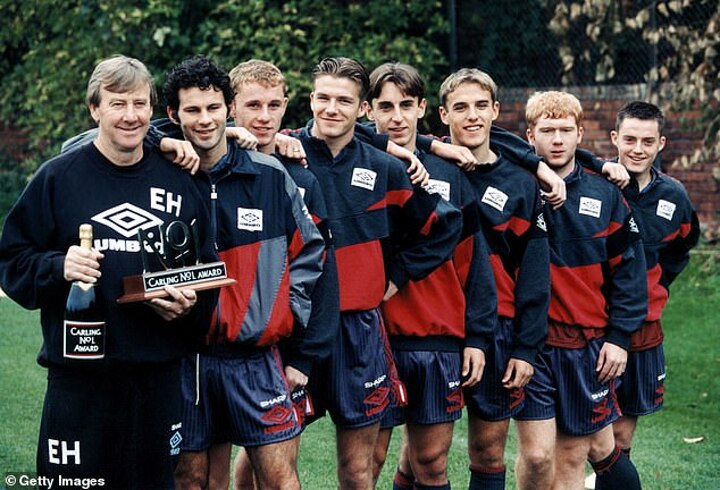
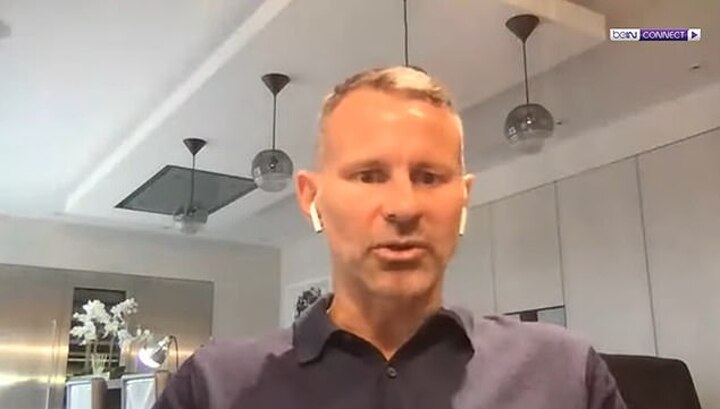
'He lost the chance to become an absolute top-dog player,' assessed Ferguson. 'He wanted to give it all up for a new career, a new lifestyle, for stardom. He fell in love with Victoria and that changed everything.'
In football terms, history suggests the manager has a point. Beckham was only 28 when he left United for Real Madrid yet he was never the same player after that.
His promotional success continued – a hundred England caps, pioneering the MLS with Los Angeles Galaxy, spells with AC Milan and PSG – but he was never called world-class again. His big shot at international glory came and went at the 2006 World Cup, by which time Sven-Goran Erikssen was accused of indulging his captain with a place in the team.
Ryan Giggs, who remained a United one-club man his entire career, recognised the relationship between Ferguson and Beckham couldn't be repaired.
'It was getting too much, arguing every other week and it was just time for both parties to move,' he said.
When the flying boot incident dominated headlines, the manager sensed an opportunity.
After days in which the narrative had been dominated by Beckham pictured in an Alice band highlighting the wound, there was tension in the air when Ferguson broke his silence in a press conference the day before a Champions League tie against Juventus.
It is hard to overestimate the scale of Beckham's fame at the time. Stephens and the SFX company had negotiated sponsorship deals for him amounting to £17million, including £4m from adidas alone – colossal figures at the time.
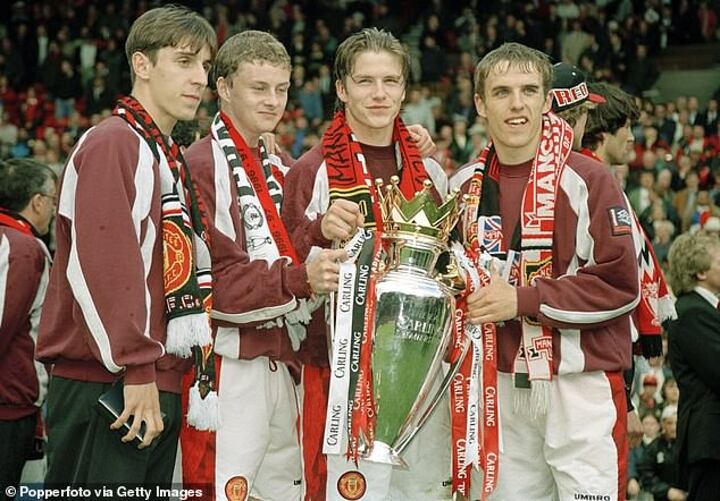
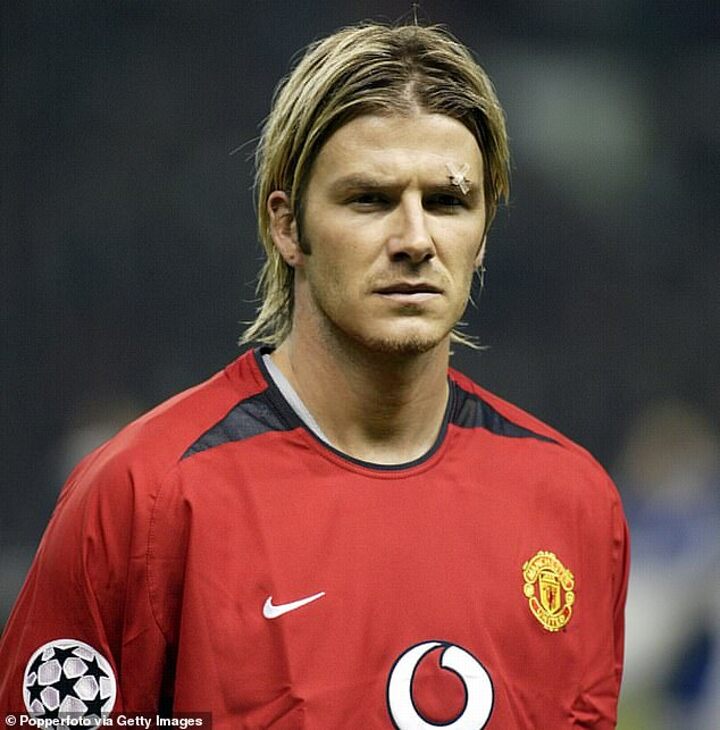
Most in the suite at Old Trafford expected Ferguson to be forced to apologise for injuring the captain of England, whose performance against Greece just over a year previously had made him a national treasure.
Instead, the United manager snapped at photographers before angrily stating: 'The dressing-room is sacrosanct. It's 100 per cent loyalty. It can never be anything less than that.'
The message was clear – Beckham had broken the trust between them. It was the end, Beckham to the Bernabeu followed at the end of the season, with a rookie called Cristiano Ronaldo signed as his long-term successor.
Thankfully, the relationship between Ferguson and Beckham has softened in the intervening years, in a way that hasn't happened with Roy Keane.
Beckham still refers to Ferguson as 'The Boss'. 'I'd like to think I'm a little wiser than when I was 21,' he says. 'Certain decisions I made were wrong.'
He speaks particularly warmly of how Ferguson protected him after the 1998 World Cup after his red card against Argentina turned him into a hate figure elsewhere.
As for Ferguson, now approaching his 79th birthday, there is no longer an axe to grind with Beckham. He faced a similar situation many years later with Wayne Rooney when he felt the player was no longer fully dedicated.
Beckham and Ferguson subsequently joined forces as ambassadors for UNICEF to help under-privileged children from around the world. 'He is an amazing person. It makes me proud,' says Fergie.
